Introduction
India’s digital health journey has embarked on a transformative odyssey, revolutionizing healthcare across its diverse landscape.
Through technological innovation and strategic initiatives, the nation has embraced a digital paradigm to enhance accessibility, affordability, and quality in healthcare delivery.
What is Digital Health?
Digital health refers to the use of technology, such as mobile devices, wearables, software, and various digital platforms, to improve healthcare services, delivery, efficiency, and patient outcomes. Digital health is the application of digital resources and techniques to improve patient experiences with healthcare. Not to be outdone by the expanding technology industry is the digital health sector. As per a report published in 2021, the global market for digital health is expected to grow from $175 billion in 2019 to around 660 billion by 2025. In actuality, the industry has increased demand for qualified individuals in fields like:
- Engineers in biomedicine and data scientists
- Programmers and UX designers
- Engineers for products
Many of us use digital health technologies every day, whether we realize it or not.
Types of Digital Health
Electronic Medical Records (EMRs): Generally regarded as a digital form of paper medical records, EMRs include essential information from a physician’s chart, including prescriptions, allergies, history, diagnosis, and other details.
Telemedicine: The practice of giving medical care to patients over the phone or through video calls is known as telemedicine.
Mobile health, or mHealth: is the use of a mobile device to obtain medical services. It is related to telemedicine. With the use of mobile health technology, patients can schedule appointments, communicate securely and quickly, and ask questions that need to be answered right away.
E-prescribing: As the name implies, this process entails generating a prescription electronically and sending it to the pharmacy or patient directly.
Digital Health in India-Policy and Scenario

National Digital Health Mission (2020) is sought to construct a digital health ecosystem through the issuance of digital health IDs to individuals, the facilitation of health record access, and the creation of a network of healthcare facilities to enable seamless data sharing.
Platforms for e-health and telemedicine: Telemedicine gained popularity, particularly during the COVID-19 epidemic, since it allowed patients to consult doctors from a distance. A plethora of e-health platforms have surfaced to offer diverse healthcare services via the internet. Examples- teladoc, zocdoc ,cerner ,amwell, and mychart.
Health Information interchange (HIE): To ensure continuity of care and minimize test duplication, efforts were undertaken to build HIE systems for the secure interchange of health information among healthcare providers.
AI and IoT in Healthcare: To enhance diagnostics, remote monitoring, and predictive analytics, artificial intelligence (AI) and Internet of Things (IoT) technologies have been increasingly integrated in the field of healthcare.
Obstacles: Notwithstanding the progress made, obstacles such worries about data privacy, deficiencies in infrastructure, problems with interoperability, and the digital divide between various socioeconomic groups continued to exist.
Policy Framework: The government attempted to create frameworks and regulations, including as data privacy laws and telemedicine practice guidelines, to oversee and regulate digital health services.
Opportunity and Scope in India
India offers a plethora of opportunities for innovation and growth in the field of digital health. The market for digital health solutions is sizable due to the nation’s large population and varied healthcare needs. Chief opportunities consist of:
- Telemedicine: Connecting patients in remote areas with healthcare providers, overcoming geographical barriers. Improving access to healthcare services through mobile apps, remote monitoring devices, and online consultations like Practo,E-Sanjeevani,Lybrate.
- Data Analytics and AI: Leveraging data analytics and artificial intelligence for predictive analysis, personalized medicine, and better healthcare management.
- Health Records Digitization: Developing platforms for electronic health records to streamline patient information and enhance care coordination.
- Health Awareness and Education: Creating digital platforms for health awareness campaigns and education, promoting preventive healthcare practices.
- E-Pharmacy: Facilitating the delivery of medications and healthcare products through online platforms like PharmEasy, ePharmacy, Netmeds, TATA 1mg.
- Wearable Technology: Expanding the use of wearable devices for health tracking and monitoring.
Challenges in India
Over the past few years, there has been a significant evolution in the health and medical sector. India will become self-sufficient in this area as part of the National Digital Health Mission’s existing ambitions. Technology’s introduction has made this feasible by uniting doctors, patients, and other stakeholders on a single platform and acting as a prompt solution to the persistent issues of accessibility and affordability. Digital health has a bright future, but there are some significant obstacles along the way.
- Infrastructure-specific problems
The situation of digital health in India has been severely hampered by the lack of appropriate digital infrastructure and qualified personnel to manage it. Improved regulations should be the goal of legislation in order to promote responsible management in the digital domain.
inadequate knowledge of digital
Even now, around 60% of Indians who reside in rural areas do not frequently utilize the Internet. Thus, one of the biggest obstacles preventing these individuals from using digital health services is a lack of appropriate computer literacy.
- Ethical challenges
The increasing use of data collection instruments raises a number of ethical issues. In order to enhance precision and offer medical recommendations, the majority of e-health systems gather, store, and evaluate patient data. Concerns about ethics and privacy arise from such behaviors.
- Inaccurate IT and AI systems
IT and AI both have significant contributions to make in creating a positive environment for digital health. But artificial intelligence is still in its infancy in India. Insufficient real-world data experimentation is available to yield completely accurate results, which ultimately reduces the efficiency of digital health platforms.
Conclusion
India has been on an ambitious and continuous journey to transform its health system through digital means. With programs like Ayushman Bharat, the National Health Stack, and numerous state-level initiatives, India has made great progress in utilizing technology to enhance healthcare affordability, accessibility, and effectiveness throughout the country.
Better patient data management and increased healthcare access, particularly in remote areas, have been made possible by the integration of digital platforms, electronic health records, telemedicine services, and mobile health apps. Furthermore, advances in data analytics, machine learning, and artificial intelligence have the potential to completely transform healthcare preventive, treatment, and diagnosis methods. Addressing these issues and guaranteeing that all societal segments have equitable access to technology-driven healthcare solutions are essential to the success of India’s digital health odyssey.
References
- Gudi, N., Lakiang, T., Pattanshetty, S., Sarbadhikari, S. N., & John, O. (2021). Challenges and prospects in india’s digital health journey. Indian Journal of Public Health, 65(2), 209. https://doi.org/10.4103/ijph.ijph_1446_20
- (2023). Digital healthcare in India: challenges and opportunities for transformation. https://www.linkedin.com/pulse/digital-healthcare-india-challenges-opportunities-transformation
- Jain, D. (2023). Regulation of digital healthcare in India: ethical and legal challenges. Healthcare, 11(6), 911. https://doi.org/10.3390/healthcare11060911
- Dang, A., Arora, D., & Rane, P. (2020). Role of digital therapeutics and the changing future of healthcare. Journal of Family Medicine and Primary Care, 9(5), 2207. https://doi.org/10.4103/jfmpc.jfmpc_105_20
- Dunn, P., & Hazzard, E. L. (2019). Technology approaches to digital health literacy. International Journal of Cardiology, 293, 294–296. https://doi.org/10.1016/j.ijcard.2019.06.039
- AI for Youth. (2024). Mygov.in. https://innovateindia.mygov.in/yuvai/
- Solomon, D. H., & Rudin, R. S. (2020). Digital health technologies: opportunities and challenges in rheumatology. Nature Reviews Rheumatology, 16(9), 525–535. https://doi.org/10.1038/s41584-020-0461-x
Written by
Ashish Joshi 1, Jyoti Pali 2, Rajasuganya 3 and Logapriya 4
-
- Dean and Distinguished University Professor School of Public Health University of Memphis, TN, USA.
- Public Health Researcher at the Foundation of Healthcare Technologies Society.
- Public Health Trainee at the Foundation of Healthcare Technologies Society.
- Intern at the Foundation of Healthcare Technologies Society.



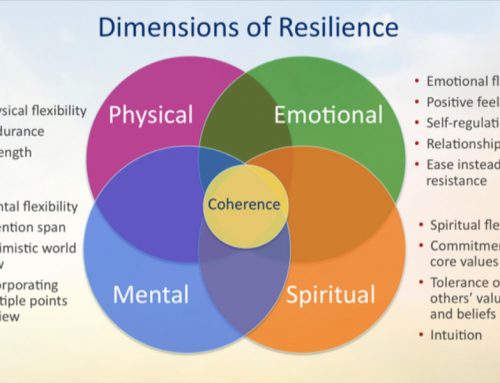


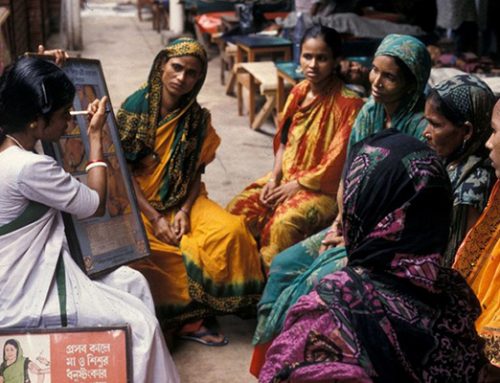
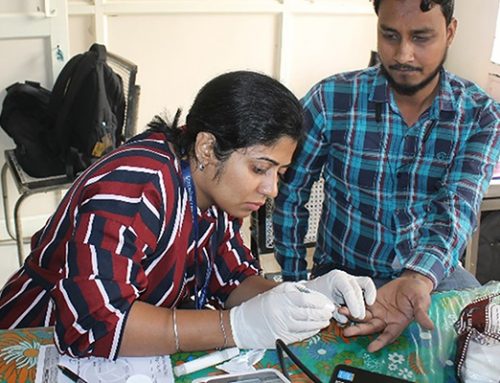


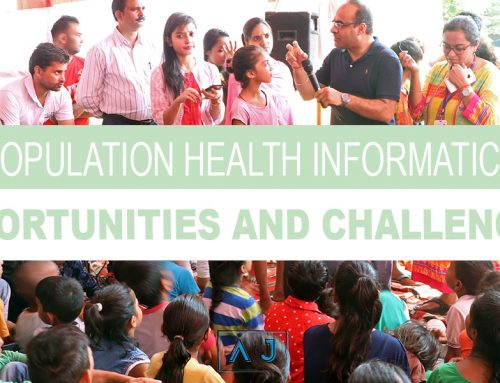



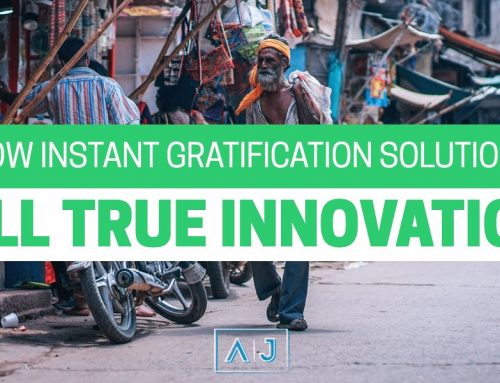


Leave A Comment